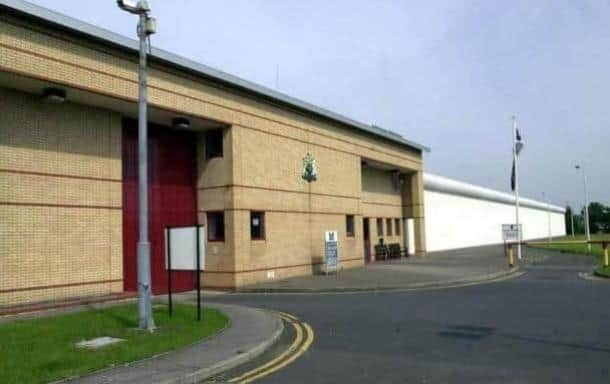Inquest into death of prisoner at HMP Garth beginst at Lancashire's County Hall
and live on Freeview channel 276
A four-day inquest into the death of a prisoner from Leyland has begun.
The inquest into the death of Phillip Kelly, 41, began at Lancashire's County Hall on Tuesday, July 25.
Advertisement
Hide AdAdvertisement
Hide AdKelly, originally from Mexborough near Doncaster was found hanged in his cell at HMP Garth on Moss Lane in Leyland on September 17 2021.
The coroner for the inquest is Nicholas Leslie Rheinberg, Assistant Coroner for Lancashire and Blackburn with Darwen, who described it as “a very tragic death”, and there is a jury as per standard practice when someone dies in custody of an unnatural cause.


Coroner Rheinberg started by saying the inquest had first been opened on September 22 2021, where formal identification took place and some brief evidence was heard.
He added that Kelly’s family, who were not able to attend on the day of July 25, have had to wait two years before the full hearing.
Advertisement
Hide AdAdvertisement
Hide AdThe coroner summarised some of the details of the case from the opening hearing two years prior but told the jury that the evidence will be re-heard over the course of the week.
Introducing the deceased, Coroner Rheinberg said: “Mr Kelly was sentenced to long term imprisonment, he had been incarcerated in a number of prisons but on August 3 2021 transferred to HMP Garth in Leyland, which was during Covid restrictions.
“It was known that Mr Kelly had misused drugs, in fact for most of his life that was a problem for him…. [in particular] a synthetic cannabinoid… more commonly referred to as spice.”
Coroner Rheinberg added that on Kelly’s transferral to HMP Garth, it was known that he had a history of self harm and suicidal thoughts, with previous prisons having actioned an ‘ACT’, known as an Assessment Care and Custody Teamwork process which helps protect vulnerable inmates.
Advertisement
Hide AdAdvertisement
Hide AdCoroner Rheinberg added: “Upon arriving at Garth, he told health care staff and prison staff that he had no thoughts of harming himself… and a motivation to give up drugs.”
Despite telling staff this, Coroner Rheinberg said there were occasions where Kelly was suspected of being under the influence of drugs whilst at HMP Garth, and even assisting in the delivery of drugs to the prison, whether voluntarily or under threat.
Kelly’s body was found in his cell by a prison officer and attempts to perform CPR were unsuccessful.
Following Kelly’s death, Consultant Pathologist Dr Mark Sissons recorded a medical cause of death of hanging, and a toxicology report by Forensic Toxicologist Dr Stephanie Martin found evidence of medicine and amphetamine in Kelly’s system, but these were deemed to not be relevant to his death.
Advertisement
Hide AdAdvertisement
Hide AdCoroner Rheinberg ended his summary by turning to the jury and saying: “That is my conclusion of the evidence that you will be hearing over the next few days but … you are the sole judges of …what did happen.”
The first witness to be called was that of James Moore, the coroner’s officer for the case, who answered basic questions about the deceased – his full name, date and place of birth, occupation which was none and address which was HMP Garth.
The second witness to be called before the lunch break was Peter Flanagan, a governor at HMP Garth, who started by explaining that it was a category B prison, housing violent offenders and sexual offenders.
He then explained the structure of the prison in terms of layout and staffing hierarchy/ responsibilities – noting that the health care staff at the prison were separately employed by Manchester Mental Health NHS Foundation Trust although they worked closely with prison staff.
Advertisement
Hide AdAdvertisement
Hide AdMr Flanagan also told the inquest the various ways in which prisoners were monitored and supported both in general and specifically during the coronavirus lockdown when inmates were confined to their cells more than ever before.
During the time that Kelly was at HMP Garth, he was in a bubble with only 15 other inmates, who were able to get showers and have breaks outside during the same time slot.
When asked whether drugs were an issue at HMP Garth, Mr Flanagan confirmed they were with prisoners smuggling them in through a variety of ways, including in their bodies on transferal between prisons – although this has been halted due to the introduction of body scans now – and via drones which deliver drugs to inmate’s individual cells from outside the building.
The prison governor added that a particular issue was spice, which could be soaked into paper and thus delivered to prisoners through inconspicuous letters from home; this has been combatted now by ensuring prisoners only ever receive photocopies of letters.
The inquest was then called to lunch but will continue over the next four days, with 21 witnesses expected to be heard in total.